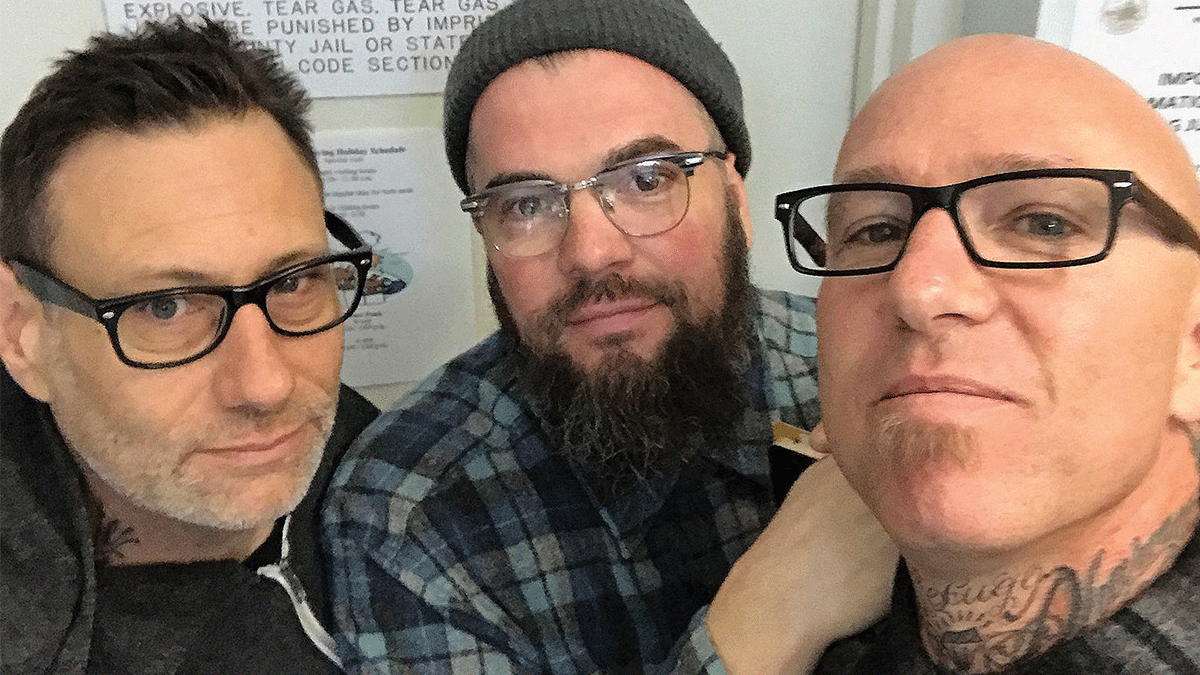An eclectic, endearingly eager group of more than 60 people squeezes into the Louden Nelson Community Center. Throughout the crowd sit grandparents, young children, dreadlocked hippies and tattooed punks, all awaiting a talk from Noah Levine, author of Dharma Punx, Against the Stream and other Buddhist-based teachings.
Levine is in town giving a special lecture on behalf of the Mind Body Awareness Project (MBA), a nonprofit he founded here decades ago. The program teaches incarcerated and at-risk youth mindful meditation and coping skills to deal with tough issues. Entry to the talk was by donation, with all proceeds going to MBA, which re-opened a local chapter the next day, headed by Joe Clements—a fellow Dharma Punx founder and singer in longtime local punk rock band Fury 66.
The mindful skills and ideas they teach are just as important outside of the penitentiary walls, Clements says, as they are within. “They are incarcerated, but we’re all prisoners of our minds and emotions,” he says. “The revolution starts inside.”
Micah Anderson, another Dharma Punx founder, has been a practicing Muslim for 20 years, and at the Nov. 19 chat, he alludes to the pall hanging over the crowd in the aftermath of the 2016 presidential election. He suggests there’s never been a better time to take action and get involved politically or spiritually.
“In this age, especially in the last couple weeks, it seems we’re all disenfranchised,” says Anderson, who also volunteers at a Muslim nonprofit in Fremont called the Ta’Leef Collective that does work similar to MBA.
The event represented something of a coming home, too, for MBA, which is now based in the East Bay.
“The Mind Body Awareness Project is very personal to me and a part of growing up in Santa Cruz,” Levine begins his talk . “The Mind Body Awareness program came out of this local community.”
Officially founded as a nonprofit in 2000, the MBA’s origins go back to 1988, when Levine was locked up in the Santa Cruz County Juvenile Hall for a childhood of drug addiction and theft. “At that time, I was constantly blaming everyone else,” he tells the captivated audience. “No responsibility for my actions, just a constant blaming of society.”
Levine believes the type of work MBA performs is not only important to the lives of the young people they interact with, but for the future of the greater community.
“It’s important now, more than ever, to come together in service,” he tells GT. “Especially populations that have been historically underserved, such as the incarcerated.”
It was during Levine’s incarceration that his father, Stephen Levine—also a world-renowned Buddhist author and practitioner who is credited with helping bring Eastern religion to the West during the 1960s—taught Noah how to mindfully meditate over the Juvenile Hall phone.
Over time, the younger Levine realized he was a drug addict and that he needed to change his life. Once released, Levine continued his practice, and in the 1990s, he began returning to the juvenile detention center as a volunteer to teach at-risk youth the same meditation practices he had learned while he was in their predicament.
“I think it’s a lot easier for someone like me to go in and say, ‘Look, I was here, but I changed my life, and I want to introduce you to it’ in a very open and offering way,” he says.
Today, the MBA headquarters are in Oakland with classes at juvenile halls in Alameda and San Mateo and continuation schools in Oakland, Newark and Hayward. By utilizing meditation and group therapy, MBA teachers show young people their 10-module curriculum with lessons such as empathy, impulse regulation, emotional intelligence and forgiveness. According to its 2015 Annual Report, MBA served 3,659 at-risk and incarcerated youth, with 88 percent saying MBA helped them manage their emotions.
“Here we are, still doing it,” Anderson says. His friendship with Levine having spanned more than 20 years, he notes that while they still teach mindful meditation, MBA is now “less dharma-approached.” Instead, it focuses more on practices based in clinical psychology and therapy.
With Clements spearheading the local reboot, the four-week pilot program features a changing cast of teachers for the youth to work with, including the fourth Dharma Punx founder, Vinnie Ferraro.
Clements believes our world needs more programs like MBA because they give troubled teens an outlet to not only manage their problems, but also provides them with a place to be creative and create meaningful relationships—allowing for a higher enlightenment of both the individual and the society.
Clements, who spent time incarcerated as an adult, never intended to start his own chapter when he began volunteering at MBA. But he quickly realized it was the next natural step, and he’s amazed at how his meditative journey has come full circle.
“It’s a really cool feeling to be a part of this, not just for myself but for our community,” he says. “It gives me chills just thinking about it.”















just got started with meditation a while ago and starting to find it has helped me with a few things I’ve been struggling with. To anyone who wants to start, it’s really simple. Find a quiet place to sit, close your eyes, relax, and do nothing. Simple as that. Focus on your breathing and observe all the thoughts that are coming into your head. It’s really like sitting in a car and staring out the window.